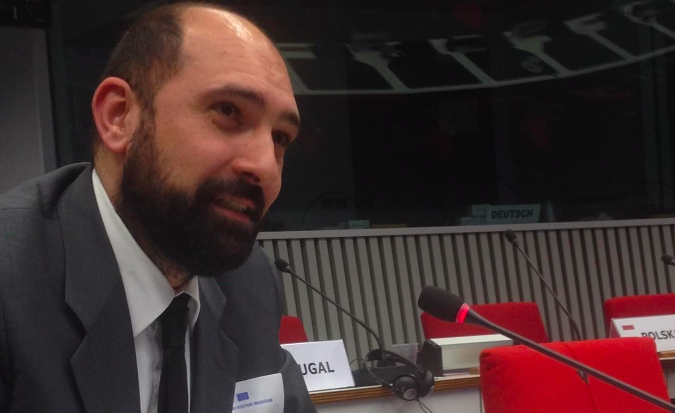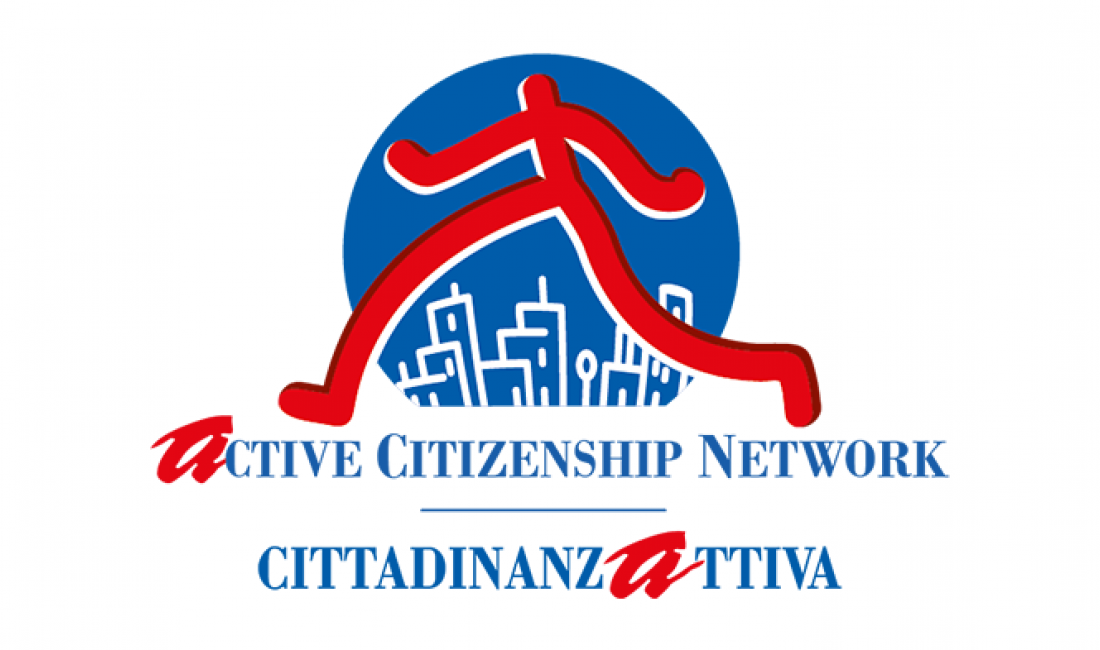While timely and necessary, the measures to halt the spread of COVID-19 have had an enormous impact not only on our daily lives, but also on our democracies. In this series, we try to asses how democratic practice has been affected and how we can make our future democracies more resilient.
We spoke to Mariano Votta, Responsible EU Affairs at Cittadinanzattiva APS and the Director of the Active Citizenship Network on the challenges for civil society in Italy and the consequences for democratic life.
Could you describe the work of your organisation?
Cittadinanzattiva is an organization, founded in Italy in 1978, which promotes citizens' activism for the protection of rights, the care of common goods, the support for people in conditions of weakness. Our mission refers to article 118, last paragraph, of the Italian Constitution, proposed by us and implemented in the constitutional reform of 2001. Article 118 recognizes the autonomous initiative of citizens, individuals and associates, for carrying out activities of common interest and, based on the principle of subsidiarity, provides for the obligation of institutions to favor active citizens.
Cittadinanzattiva is independent from any political affiliation, trade unions, private companies and public institutions. Cittadinanzattiva’s main objectives are the promotion of civic participation and the protection of citizens’ rights in Italy and in Europe. It considers citizens a fundamental resource for democracy who play an active role in society and should have the opportunity to participate in everyday policy making.
Because of the COVID-19 pandemic, it was necessary to reorganize ourselves, to reshape priorities and modus operandi. Evidently, it is in the DNA of this citizens' organization - which for over 40 years has been working to protect health as a common good - the ability to quickly read the needs of people in situations of fragility and to reinterpret their needs in concrete requests and initiatives of civic activism, as better described in the next paragraphs. As Italy was, and still is under attack of Covid-19, all the following 20 concrete COVID-19 related initiatives - at this stage self-financed by Cittadinanzattiva – have been carried out at the national level.Are you facing difficulties in your work in support of citizens’ rights and freedoms?
Certainly, the situation does not help and there is no doubt that the pandemic is slowing down, if nothing else, the interlocution with the institutions, at European and national level, which is no small thing in a correct democratic dialectic.
Working - as mentioned - both at national and European level, the constraints and limitations in not being able to move and in working from home are even greater: it is enough just thinking of the public initiatives that we had planned from March to June, now postponed to a date to be destined. Two examples above all, related to my role as the head and director of European policies, I think are exemplary because they both have to do with the dialectic between civil society and the European institutions: without doing it on purpose, talking about the pandemic and global health, the annual European Patients' Rights Day was scheduled in May at the European Parliament, a fixed appointment - now in its 14th edition - which focuses on the enforceability of patients’ rights and health priorities, now more than ever sadly at the agenda.
For the month of June, instead, we were planning the presentation of an important political initiative aimed at strengthening collaboration between the European institutions and the many expressions of civil society dedicated to the objectives of sustainable development. In fact, in the immediate aftermath of the 2019 European elections, Active Citizenship Network (ACN), the EU branch of the NGO Cittadinanzattiva, the European umbrella association called European Consumers Union (ECU) and the civil society coalition Italian Alliance for Sustainable Development (ASviS) have decided to promote a political initiative that aims to create the informal Inter-institutional Group “SDGs for well-being and consumers’ protection”.
The Inter-Institutional Group aims to discuss and raise awareness on how the individual, as a citizen, can give his/her contribution to the SDGs and to the European Green New Deal. This initiative represents the desire of civil society to contribute to the SDGs and the Green New Deal. In fact, we strongly believe that citizens’ and consumers’ empowerment should be the pillar of the transition towards a more inclusive and sustainable Europe.
The initiative is already endorsed by the “SDGs Multi-Stakeholders Network”, that today counts with almost 40 among National and European Associations, all interested to collect and share best practices, as well as to open a dialogue with the EU Institutions. It will be necessary to be patient, in the hope that certain themes will be central also in relation to the Conference on the future of Europe. In particular, on April 18th, the day of the anniversary of the European Patients' Rights Day 2020, supported by many leaders of associations but also by experts and MEPs, we launched an appeal: the appeal is addressed to the European Institutions so that the next Conference on the future of Europe focuses also on the theme of health. From how important the topics of health in the European political debate will be, we will understand if the concept "All policies for a healthy Europe" is only a claim or it is the direction taken by the European institutions and the kaleidoscope with which we’ll evaluate their work.

Which are the main challenges and why?
This pandemic confronts us with the image of a European Union pervaded by national egoisms rather than widespread solidarity, highlighting the difficulty of the European Institutions to make rapid and effective decisions for a common strategy of contrast and reaction to the pandemic.
At a national level, different needs must be reconciled, all in themselves legitimate, but in a common interest point of view, not all priorities. And this is neither simple nor obvious, hoping that it will be later accepted.
In particular, in these days in Italy the debate is focusing on the cd. "PHASE 2", which should gradually allow us to leave our houses to resume working activities, with the due cautions and measures. The problem is that the discussion seems to concentrate on when and not on how, between the proponents of ‘yes to opening’ and the proponents of ‘no to opening’, thus splitting public opinion into factions, while little is said about the "how" to reopen, which would include a common commitment.
In this regard, days ago a joint appeal took place, coming from the many expressions of the Italian civil society who felt the duty to intervene so that the intermediate bodies that make up the Italian social capital are soon involved in a great job of taking charge of families and workers affected by the crisis. As a civil society, it is asked to be involved in the garrison and the rebirth of the distorted social tissues. In an epochal phase like this, the Third sector cannot be considered irrelevant or, worse, treated according to a logic of subjection. Especially since the social tissue of the country is at stake. It is not possible to keep the Third sector on the margins of the emergency, also because the State alone is not enough.
This appeal stems from the awareness that we are all experiencing an unprecedented upheaval of democratic lifestyles, a shock that requires vision in order to face not only the exit from it, but also and above all the reconstruction of social ties and the revival of a man-sized economy, who cares about the centrality of the person, of the territories and a constant attention to the environment and the enforceability of rights. The Government is asked to be immediately interlocutors at the tables where "PHASE 2" is discussed, the intermediate social bodies are asked to speak for their social knowledge and for their proximity practices necessary for any recovery hypothesis.
We need a clear and transparent road map to gradually get out of it, working more in synergy and less in contrast. A purpose that is easy to say as it is difficult to accomplish, also because the management of the emergency has made it clear that there are obvious differences between regions, between organizational models and spending priorities of public resources. There have probably been avoidable deaths and political choices which will then have to be answered, intervening to ensure that the needs of citizens, the enforceability of rights and support for fragile and distressed sections of the population are finally placed at the top of the political agenda, at a national and local level.
What is the situation of democracy and citizens’ rights in Italy during the crisis?
As mentioned in one of the 20 concrete actions described above, there is also an impact of the pandemic on the democratic life of the country.
Citizens begin to be confused on the decisions (restrictions/provisions/concessions) which not only change with extreme speed, but which in some cases - taken by the different levels of the government - are conflicting: what declared by the national government is not always reflected in the decisions of the individual Italian regions. However, it must be acknowledged that Italy is the first country of a western democracy that is facing this emergency.
In this situation, therefore, there is a high risk of someone speculating politically on the situation (including on the numbers of contagions and deaths) while now more than ever there is a need for everyone to take responsibility, from who is today at the government to those who are in the opposition today. It is a confrontation that can only take place in the institutional places designated. From here the appeal to institutions promoted by the Italian civil society, to which Cittadinanzattiva has joined, to open again the Parliament.
The health and social emergency caused by the dramatic Covid-19 epidemic puts a strain on the country's democratic strength. Restrictive measures are important for managing the health emergency, but an appeal launched by civil society organizations, including Cittadinanzattiva, is asking for the Parliament to resume its activities, because protecting democratic representation is important especially in situations of crisis.
The Covid-19 emergency that we are going through and which has been going on for over a month now is putting a strain on the stability of our country, not only from a health point of view, but also from an institutional point of view.
The spread and the force of the contagion have led the public authorities to adopt extreme measures of social distancing and health precaution that have limited the civil liberties of all of us. Italian citizens have demonstrated that they can patiently accept these restrictive measures with the hope that they will not last too long and that they will not go beyond the management of the virus emergency.
On the political-institutional level, the containment of the epidemic has resulted above all in urgent decrees issued by the Prime Minister which do not require approval by the Presidency of the Republic and by the Parliament. The Parliament itself has been working at very low ranks since the beginning of the health emergency, with the convening of a single weekly meeting widely deserted by our representatives.
Unfortunately, no one can predict how long the emergency will last and the situation in which we find ourselves is paradoxical: the compression of many of the personal freedoms guaranteed by the Constitution takes place just when the Parliament - the guarantor of the rights of each of us - is unable to meet and fully perform its functions.
Aware of the need for timely and prompt decisions, required by the emergency situation, civil society organizations in Italy hope, however, that the Parliament, the institution that most of all should represent citizens and act as a transmission belt between the issues that come from the society and the institutions, may resume its activities as soon as possible by supporting the Government in this difficult moment.
The longer the emergency lasts, the greater the issues on which to decide will be and we cannot think that the Parliament will not return to play a central role at this stage, even expressing itself on the measures taken so far. There is a need for the contribution of all the majority and minority political forces, the representation of all the territories, more or less affected, and it is only through the discussion in the Parliament that this aim can be achieved.
We believe that the principle of democratic representation must be protected and find its place of affirmation also and above all in such a serious situation for the country.
For this reason, we hope to see as soon as possible Deputies and Senators resume their functions and their role, albeit remotely and in ways that guarantee their safety, as well as for all the other categories of workers.
The reopening of the Parliament is not only a return to the "normal democratic life", but a message to the whole nation: even in the darkest periods, the stability of our democracy remains an inviolable principle which cannot be waived.
Are there dangers in the long run?
A danger feared by many is that Italy with its social aids grafted into the cumbersome existing bureaucratic apparatus risks lending its side to organized crime. Having said that, I believe that, in the near future, the European institutions are the ones which face the greatest risk. On the other hand, either the European institutions demonstrate with the facts that they know how to deal with emergencies (yesterday the migrants, today the pandemic, who knows what tomorrow) or the shadow that has already dropped on them since the European elections will only increase. In this regard, the European Movement in Italy, of which I am a member of the Presidential Council, has decided to submit to the European leaders, in view of the European Council on 23 April, an appeal signed by over one hundred and fifty personalities coming from different member countries of the European Union. While convinced that the recent decisions of the Eurogroup represent a step forward, they are not considered sufficient to exit the serious economic and social crisis that will follow the health crisis: more courage is needed.
What is the situation of civil society and non-governmental organisations at this moment?
In Italy, almost all the organizations active in international cooperation and solidarity had to suspend and/or reduce their activities in Italy and abroad due to the Covid-19 pandemic. 65% of NGOs have blocked or postponed over 50% of their operations, only one organization out of 10 declares that they have not had to slow down or stop the interventions. Over 150 Italian non-governmental organizations have thus responded to the questions of an investigation proposed by Open Cooperazione in collaboration with the AOI, CINI and LINK2007 networks, with the aim of composing the picture of the sector's situation in terms of problems and responses to the Covid-19 emergency.
The issue of economic sustainability in the face of the crisis ahead is also to be considered: 40% of responding NGOs declare that in this first month of the Covid-19 emergency their revenue from fundraising has decreased by at least 50%. Almost the same percentage (37%) will benefit from the extraordinary redundancy fund made available by the Cura Italia decree. 35% of NGOs also had to slow down and/or interrupt the ongoing design activities mainly due to the too close deadlines and the inability to do missions and trips abroad.
What has been presented above is only a partial cross-section because it concerns only the Italian organizations active in international cooperation and solidarity, but it is nonetheless indicative of the situation that we are all experiencing, which in some cases may also compromise in part the participation in the democratic life of the associations, which they obviously have to restructure themselves. To give a concrete example, regarding my association, Cittadinanzattiva, we are thinking of postponing our National Congress scheduled for September 2020, a fundamental appointment because it defines the new governance and indicates the new leadership for the next few years. Which, for an organization that has over 40 years of life, is no small thing. Given that our association is on a democratic basis, the National Congress must be preceded by regional congresses, and these, in turn, by local city assemblies. The pandemic makes it difficult to respect the time schedule, thus, the Congress will be very likely postponed to 2021.
Democracy International is grateful to Maira Cardillo, Community & Fellowship Assistant at Active Citizenship Network for the interview




